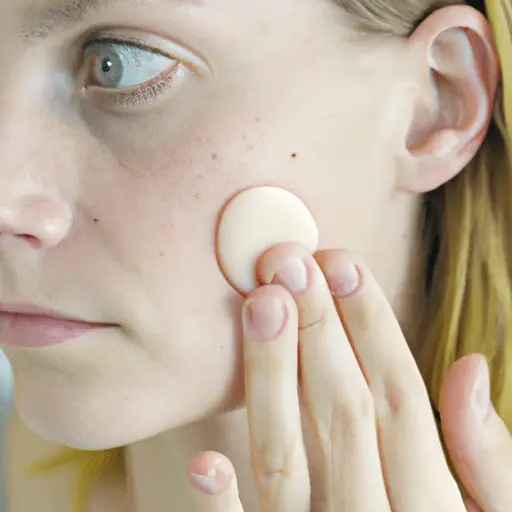-
Table of Contents
- Tips for Preventing Acne Scarring
- Key Takeaways
- Introduction: Understanding Acne Scarring
- Preventing Acne Scarring: The Importance of Early Treatment
- Adopting a Proper Skincare Routine
- Maintaining a Healthy Lifestyle
- Professional Treatments for Acne Scarring
- FAQ Section: Common Questions about Acne Scarring
- Conclusion: Taking Control of Your Skin Health
- Key Takeaways Revisited
Tips for Preventing Acne Scarring

[youtubomatic_search]
Key Takeaways
- Acne scarring can be prevented by adopting a proper skincare routine and avoiding skin-picking.
- Early treatment of acne is crucial to prevent scarring.
- Healthy lifestyle choices, including a balanced diet and regular exercise, can help prevent acne and subsequent scarring.
- Professional treatments can help reduce the risk of acne scarring.
- Understanding the different types of acne scars can help in choosing the right prevention and treatment methods.
Introduction: Understanding Acne Scarring
Acne is a common skin condition that affects millions of people worldwide. While it is most prevalent among teenagers, it can affect people of all ages. One of the most distressing outcomes of acne is scarring, which can leave permanent marks on the skin. However, with the right knowledge and practices, it is possible to prevent acne scarring. This article will delve into the various ways to prevent acne scarring, backed by scientific research and expert advice.
Preventing Acne Scarring: The Importance of Early Treatment
According to the American Academy of Dermatology (AAD), early treatment of acne is the most effective way to prevent scarring. The longer acne goes untreated, the higher the risk of scars. Therefore, it is crucial to seek professional help as soon as acne starts to appear. Dermatologists can provide treatments that reduce inflammation, kill bacteria, and prevent acne from worsening.
Adopting a Proper Skincare Routine
A good skincare routine is essential in preventing acne and subsequent scarring. This includes cleansing the face twice a day with a gentle cleanser, using non-comedogenic products, and applying a moisturizer suitable for your skin type. Exfoliating once a week can also help remove dead skin cells and prevent clogged pores. However, over-exfoliation can irritate the skin and worsen acne, so it’s important to do it sparingly.
Maintaining a Healthy Lifestyle
Research has shown that lifestyle factors, such as diet and stress, can contribute to acne. A study published in the Journal of the American Academy of Dermatology found that a diet high in dairy and high-glycemic foods can increase the risk of acne. Regular exercise can also help reduce stress and regulate hormones, both of which can help prevent acne.
Professional Treatments for Acne Scarring
There are several professional treatments available that can help prevent acne scarring. These include chemical peels, laser treatments, and microdermabrasion. These treatments can help reduce inflammation, kill bacteria, and stimulate the production of collagen, which can help prevent scarring.
FAQ Section: Common Questions about Acne Scarring
- What causes acne scarring? Acne scarring is caused by inflammation in the skin. When the pore swells, it breaks the follicle wall, leading to scarring.
- Can all types of acne lead to scarring? Not all types of acne lead to scarring. Non-inflammatory acne, such as blackheads and whiteheads, usually don’t cause scarring. Inflammatory acne, such as cysts and nodules, are more likely to cause scarring.
- Can acne scars be completely removed? While some acne scars can be reduced significantly with treatment, they may not be completely removed. However, there are treatments available that can improve the appearance of scars.
- How can I prevent acne scars from getting worse? Avoiding sun exposure, not picking at your skin, and following a proper skincare routine can help prevent acne scars from getting worse.
- What professional treatments are available for acne scarring? There are several professional treatments available for acne scarring, including chemical peels, laser treatments, and microdermabrasion.
Conclusion: Taking Control of Your Skin Health
Acne scarring can be a distressing outcome of acne, but it can be prevented with the right practices. Early treatment of acne, adopting a proper skincare routine, maintaining a healthy lifestyle, and seeking professional treatments can all help prevent acne scarring. Understanding the different types of acne scars can also help in choosing the right prevention and treatment methods. By taking control of your skin health, you can reduce the risk of acne scarring and maintain a clear, healthy complexion.
Key Takeaways Revisited
- Preventing acne scarring starts with early treatment of acne.
- A proper skincare routine is crucial in preventing acne and subsequent scarring.
- Lifestyle factors, such as diet and stress, can contribute to acne and should be managed effectively.
- Professional treatments can help reduce the risk of acne scarring.
- Understanding the different types of acne scars can guide in choosing the right prevention and treatment methods.
[youtubomatic_search]

Leave a Reply